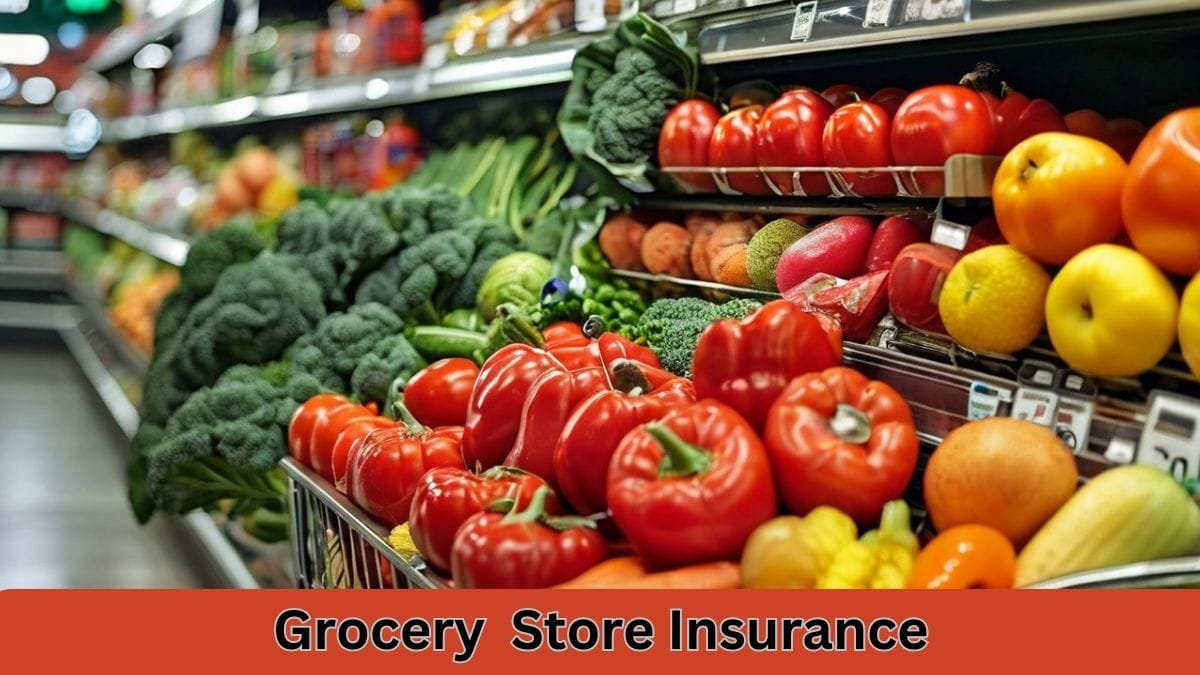BUSINESS
Exploring Wifelovers: Understanding Niche Online Communities

The term Wifelovers has gained attention across various online platforms, often sparking curiosity and controversy. Whether you’re here out of curiosity or research, this guide will provide a thorough understanding of what “Wifelovers” entails, its online presence, the implications surrounding it, and how it fits into the broader landscape of internet culture.
What is “Wifelovers”?
The Definitison of “Wifelovers”
“Wifelovers” refers to an online community or platform that focuses on sharing content related to romantic or intimate relationships involving married women. The term often suggests a niche interest group that discusses, shares, or explores various aspects of relationships, sometimes in a provocative or adult-themed manner.
The History and Evolution of “Wifeloverss”
Origins of the Term
The concept of “Wifelovers” likely evolved from traditional relationship forums and communities that expanded into more explicit or specialized interests. As the internet grew, so did the variety of online niches, leading to the creation of specific platforms catering to distinct audiences.
Evolution in the Digital Age
With the rise of the internet, particularly forums and social networks, communities like “Wifelovers” have found their place online. These platforms often started as forums where like-minded individuals could connect, share stories, and discuss topics related to relationships involving married women. Over time, some of these communities became more explicit, catering to adult interests and desires.
Blogginglass
Understanding the Online Community of “Wifeloverss”
Hosting “Wifelovers” Content
Various platforms host content related to “Wifelovers.” These range from dedicated websites to social media groups and adult content-sharing platforms. While some of these sites focus on discussion and relationship advice, others may cater to more explicit content.
Popular Forums and Websites
Dedicated Websites: Certain websites specifically target the Wifelovers community, offering forums, stories, and content that cater to this niche.Social Media Groups: Platforms like Reddit and private Facebook groups may also host communities where users discuss topics related to “Wifelovers.”Adult Content Platforms: Some sites within the adult industry have sections or communities labeled under the “Wifelovers” category, where users share more explicit material.
The Cultural and Social Implications of “Wifeloverss”
Examining the Social Stigma
The term “Wifelovers” often carries a certain stigma due to its association with adult content. Societal norms around marriage, fidelity, and relationships can lead to negative perceptions of such communities. However, not all “Wifelovers” platforms are explicit; some focus on discussions about the complexities of marriage and relationships.
Relationship Dynamics in the “Wifelovers” Community
Many in the “Wifelovers” community may argue that their interests and discussions revolve around deeper relationship dynamics, such as the concept of open marriages, polyamory, or simply exploring fantasies within a consensual framework.
The Ethical Considerations of Wifelovers
Consent and Privacy
A critical issue within the Wifelovers community is the importance of consent and privacy. Sharing intimate content online without the express permission of all involved parties is not only unethical but also illegal in many jurisdictions.
Navigating Ethical Boundaries
For those involved in these communities, it’s crucial to navigate the boundaries carefully. Whether sharing stories, images, or experiences, ensuring that all parties are aware and consenting is key to maintaining ethical standards.
SEO Implications and Ranking for Wifelovers
SEO Strategies for “Wifelovers” Content
For websites and platforms aiming to rank on search engines under the keyword “Wifelovers,” implementing effective SEO strategies is crucial. Given the niche nature of the term, specific SEO tactics can help improve visibility and attract the right audience.
Keyword Optimization
Primary Keywords: Focus on primary keywords like Wifeloverss, “wife lovers community,” and “married women relationships.”Secondary Keywords: Include variations like “relationship forums,” “open marriage discussions,” and “adult content sharing” to broaden the reach.Content Relevance: Ensure that all content is relevant to the keywords, providing valuable information that meets user intent.
High-Quality Content Creation
Creating high-quality, original content is essential. This can include articles, guides, and discussions that genuinely inform and engage the audience, encouraging longer visits and reducing bounce rates—both important factors for SEO.
Legal Aspects Surrounding “Wifelovers”
Legal Risks and Considerations
Operating or participating in a Wifeloverss community can involve legal risks, especially if the content shared violates privacy laws or involves non-consensual sharing. Understanding the legal landscape is essential for both users and site operators.
Protecting Privacy
Ensuring that any shared content adheres to privacy laws is critical. This includes obtaining consent from all involved parties before sharing any intimate or identifying material.
How to Safely Navigate Wifelovers Platforms
Protecting Your Identity
When engaging in Wifeloverss communities, safeguarding your personal information is crucial. Using anonymous accounts, VPNs, and being mindful of the information shared can help protect your identity online.
Understanding Community Guidelines
Most legitimate platforms will have clear guidelines about what is acceptable to share. Familiarizing yourself with these rules can help you stay within ethical and legal boundaries while participating in the community.
Conclusion
“Wifeloverss” is a term that encapsulates a diverse online community, with interests ranging from relationship advice to more explicit content. While it carries certain social stigmas and legal considerations, those who participate in these communities often find a space where they can explore relationship dynamics in a consensual and open environment. For those involved or curious, understanding the nuances, ethical implications, and SEO strategies surrounding “Wifeloverss” can lead to a safer and more informed online experience.
FAQs
Is it legal to participate in Wifelovers communities?
Yes, as long as you adhere to all relevant laws regarding consent and privacy, participation in such communities is legal. It’s important to stay informed about the legal boundaries in your region.
Are all “Wifelovers” platforms explicit?
No, while some platforms may host explicit content, others focus on relationship discussions and advice without delving into adult content.
How can I protect my identity on Wifeloverss platforms?
Use anonymous profiles, avoid sharing personal information, and consider using a VPN to protect your identity while engaging in these communities.
Can “Wifelovers” content be ranked on Google?
Yes, with effective SEO strategies, content related to “Wifelovers” can rank on Google, especially if it provides value and relevance to the target audience.
What should I do if I encounter non-consensual content on “Wifeloverss” platforms?
Report it immediately to the platform administrators and avoid engaging with or sharing such content to protect yourself legally and ethically.
BUSINESS
Oil Transfer Pump: A Comprehensive Guide to Understanding Its Importance, Types, and Applications
BUSINESS
peak auto auction: A Comprehensive Guide to Understanding the Industry Leader
BUSINESS
Grocery Store Insurance: Protecting Your Business and Your Customers

Running a grocery store is a complex and often unpredictable endeavor. Whether you’re an independent shop or part of a larger chain, you face a range of risks that can impact your business. These risks can come in many forms, from accidents on the premises to damage caused by natural disasters or even cyberattacks. Grocery store insurance is an essential investment to safeguard your business, your employees, and your customers. In this article, we’ll explore why grocery store insurance is necessary, the types of coverage you should consider, and how to find the right policy for your needs.
The Importance of Grocery Store Insurance
Grocery stores are exposed to a wide variety of risks that can disrupt operations and lead to significant financial losses. A single incident, such as a slip-and-fall accident in the aisles or damage to your inventory from a fire, can be costly without the proper insurance coverage.
Moreover, grocery stores often serve as an essential part of the community, providing customers with daily necessities. A business interruption—whether from a natural disaster, equipment failure, or a major liability claim—could have a profound impact on your ability to provide these essential services.
Insurance helps mitigate these risks, ensuring that your business remains financially stable and can recover from unforeseen events. Without the right insurance, a major incident could potentially lead to bankruptcy. Thus, grocery store insurance isn’t just a safety net; it’s a necessary tool for long-term sustainability.
Common Risks Faced by Grocery Stores
Understanding the risks your grocery store faces is the first step in determining the right insurance coverage. Here are some of the most common risks that grocery stores deal with:
Slip-and-Fall Accidents:
The nature of a grocery store’s layout and the high volume of customers means that the risk of slips, trips, and falls is significant. Wet floors, spilled liquids, uneven flooring, and obstructions can all lead to accidents that result in injuries.
Product Liability:
Grocery stores carry a variety of products, including food items, cleaning supplies, and pharmaceuticals. If a customer is injured or becomes ill from consuming or using a product sold in your store, you could be held liable for damages.
Property Damage:
Fires, floods, and other natural disasters can cause significant damage to your store’s physical location, inventory, and equipment. Property damage can result in costly repairs, loss of inventory, and a halt in operations while repairs are made.
Theft and Vandalism:
Grocery stores are often targeted by thieves, and the risk of theft is higher than many other types of businesses due to the high volume of goods and foot traffic. Whether it’s shoplifting, employee theft, or damage from vandalism, these incidents can be financially damaging.
Business Interruption:
If your store is forced to close due to damage, illness, or any other issue, your ability to generate income can be severely impacted. Business interruption insurance helps cover lost revenue during downtime.
Cybersecurity Risks:
With the growing reliance on digital systems for sales, inventory tracking, and customer data management, grocery stores are increasingly vulnerable to cyberattacks. A breach could lead to data theft or service disruptions.
Types of Insurance for Grocery Stores
Grocery store insurance isn’t a one-size-fits-all solution. The right coverage for your store depends on factors like your store’s size, location, and the types of products you sell. Here are some of the most important types of insurance coverage for grocery store owners:
General Liability Insurance
General liability insurance is one of the most essential types of coverage for any business, including grocery stores. It protects your business from third-party claims for bodily injury or property damage that occur on your premises or as a result of your business operations.
For example, if a customer slips on a wet floor and breaks their arm, general liability insurance would cover their medical expenses and any legal fees if they decide to sue. It also protects you against claims arising from product defects or faulty services that cause harm.
Product Liability Insurance
As a grocery store, you carry a wide variety of products that could potentially cause harm to your customers. Whether it’s food contamination, allergic reactions, or improper labeling, product liability insurance protects your business from claims related to the products you sell.
If a customer consumes a product that makes them sick or causes an allergic reaction, this insurance will help cover the costs of medical treatment and legal fees. It’s especially crucial for stores that sell perishable goods, imported items, or health-related products.
Property Insurance
Property insurance covers physical damage to your store’s building and the contents inside. This can include damage to your building from fire, flooding, vandalism, or other natural disasters. It also protects your inventory, equipment, and fixtures.
If your store’s refrigerators break down and cause food spoilage, property insurance can help cover the loss of goods. Similarly, if a fire damages your store or a flood ruins your inventory, property insurance would help cover the cost of repairs and replacements.
Workers’ Compensation Insurance
As an employer, you are legally required to provide workers’ compensation insurance to your employees. This insurance provides coverage for medical expenses, lost wages, and rehabilitation costs for workers who are injured on the job.
Grocery stores are busy, high-traffic environments, which means employees face a higher risk of injury. Whether it’s lifting heavy boxes, handling machinery, or working with slippery floors, workers’ compensation ensures that employees who get hurt on the job are compensated and can recover without bearing the financial burden.
Business Interruption Insurance
Business interruption insurance, also known as business income insurance, covers lost income if your grocery store has to temporarily close due to an event like a fire, storm, or other covered loss. This coverage is essential if your store’s closure leads to a significant loss of income.
For example, if a storm damages your store, business interruption insurance can help cover the cost of lost sales and ongoing expenses (such as rent or utilities) while you rebuild or recover. This can make the difference between staying afloat and going out of business.
Commercial Auto Insurance
If your grocery store uses vehicles for deliveries or transporting goods, commercial auto insurance is necessary. This insurance covers vehicles owned or operated by your business, including trucks, vans, or any other commercial vehicles.
Whether your store owns a fleet of delivery vehicles or uses personal vehicles for business purposes, commercial auto insurance protects against accidents, theft, or damage involving your vehicles.
Cyber Liability Insurance
In today’s digital age, grocery stores that accept online orders, store customer information, or rely on technology for inventory management are vulnerable to cyberattacks. Cyber liability insurance helps protect your business from the costs associated with data breaches, hacking, or other cyber incidents.
This insurance can cover expenses related to notifying customers about data breaches, restoring stolen data, and dealing with legal fees or lawsuits from affected customers.
How to Choose the Right Insurance for Your Grocery Store
When selecting insurance for your grocery store, it’s essential to assess your risks, business size, and coverage needs. Here are some steps to help guide you:
Evaluate Your Risks:
Identify the specific risks your grocery store faces. Do you have a lot of foot traffic? Are you located in a flood-prone area? Do you sell high-risk products like fresh seafood or alcohol? Understanding your risks will help you determine the right coverage.
Consult with an Insurance Broker:
A broker can help you navigate the complex world of insurance and find the policies that best meet your needs. They can also help you bundle policies for discounts and create a comprehensive insurance package.
Compare Multiple Quotes:
Different insurers offer different rates and levels of coverage. Take the time to compare quotes from several providers to ensure you’re getting the best value for your money.
Review Your Policy Regularly:
Your grocery store’s needs may change over time. Be sure to review your insurance policy annually to make sure you’re still adequately covered as your business grows or evolves.
Conclusion
Grocery store insurance is essential to protect your business from a range of risks, including accidents, property damage, theft, and liability claims. By investing in the right coverage, you can safeguard your store, your employees, and your customers, ensuring that your business remains resilient and able to recover from any unforeseen challenges. With the right policies in place, you can focus on growing your business and serving your community with confidence.
FAQs
Why do grocery stores need insurance?
Grocery stores face a wide range of risks, including property damage, theft, slip-and-fall accidents, product liability claims, and business interruption due to unforeseen events. Insurance helps mitigate these risks, ensuring that your store is financially protected in the event of an accident or disaster. Without insurance, the financial impact of an incident could be devastating to your business, leading to significant loss, legal complications, or even bankruptcy.
What types of insurance do grocery stores typically need?
A grocery store typically needs several types of insurance to cover its various risks, including:
General Liability Insurance:
Protects against third-party claims for bodily injury or property damage on your premises.
Product Liability Insurance:
Covers claims related to illnesses or injuries caused by products sold in your store.
Property Insurance:
Covers damage to your store, inventory, equipment, and physical assets due to fire, flooding, theft, or other incidents.
Workers’ Compensation Insurance:
Provides coverage for employee injuries on the job, including medical expenses and lost wages.
Business Interruption Insurance:
Helps cover lost income and ongoing expenses if your store needs to temporarily close due to a covered incident.
Commercial Auto Insurance:
If your store operates delivery vehicles, this covers vehicle accidents and damage.
Cyber Liability Insurance:
Protects against data breaches and cyberattacks, which can result in stolen customer data or system outages.
Do I need product liability insurance if I don’t sell food?
Yes. While grocery stores are commonly associated with selling food, product liability insurance is necessary regardless of the type of products you sell. This type of insurance protects your business if a customer is injured or harmed by any of the products you carry, whether it’s food, cleaning products, health items, or other consumer goods. For example, if a cleaning product you sell causes harm to a customer, product liability insurance can help cover medical expenses and legal fees.
How much does grocery store insurance cost?
The cost of grocery store insurance depends on several factors, including:
The size and location of your store.
The types of products you sell (perishable goods, alcohol, etc.).
The number of employees you have.
Your store’s annual revenue and risk profile.
The amount of coverage you need and the policy limits.
On average, grocery store insurance can range from a few hundred to several thousand dollars per year. For a small, independent grocery store, you might pay between $500 and $2,000 annually for basic coverage. However, larger stores or those with higher risk factors may pay more.
It’s important to shop around for quotes and consult with an insurance broker to get a customized estimate based on your specific needs.
Is workers’ compensation insurance required for grocery stores?
Yes, in most states, workers’ compensation insurance is a legal requirement for businesses with employees. This insurance covers medical expenses and lost wages for employees who are injured on the job. In the case of a grocery store, employees are at risk of injuries related to lifting heavy items, slips and falls, or accidents with machinery (like forklifts or pallet jacks). Failure to carry workers’ compensation insurance could result in significant legal and financial penalties.
- FASHION7 years ago
These ’90s fashion trends are making a comeback in 2017
- ENTERTAINMENT7 years ago
The final 6 ‘Game of Thrones’ episodes might feel like a full season
- FASHION7 years ago
According to Dior Couture, this taboo fashion accessory is back
- ENTERTAINMENT7 years ago
The old and New Edition cast comes together to perform
- Sports7 years ago
Phillies’ Aaron Altherr makes mind-boggling barehanded play
- BUSINESS7 years ago
Uber and Lyft are finally available in all of New York State
- ENTERTAINMENT7 years ago
Disney’s live-action Aladdin finally finds its stars
- Sports7 years ago
Steph Curry finally got the contract he deserves from the Warriors






